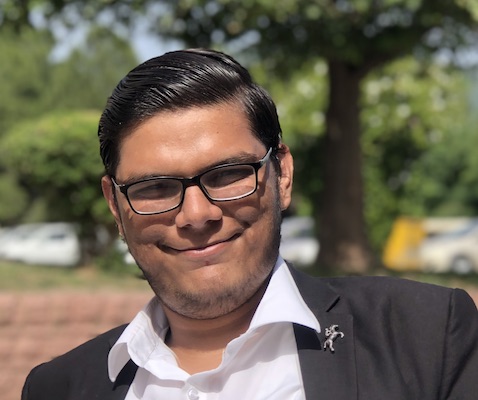| Wed. July 09, 2025 | |

|
|
|
 The last few weeks have been full of events and happenings in the Middle East that have grabbed our attention. It's not surprising, but one thing, in particular, deserves keen attention. The recent chain of events suggests a subjective argument that ‘Generation 1979’ is almost a part of the Middle Eastern peninsula's traumatized past. Changing geopolitical dynamics, shifting social and economic conditions, and the emergence of new political and social movements have contributed majorly to this decline. But, wait a second! What is ‘Generation 1979?’ Born during a period of seismic change in the Middle East, ‘Generation 1979’ is a demographic group whose lives have been shaped by the events of their time. This group came of age during a period of great turmoil, marked by the Iranian Revolution, Grand Mosque seizure, and the Soviet invasion of Afghanistan. The group has been defined by the complex and often contradictory forces that have shaped the region's politics and society. ‘Generation 1979’ has experienced both the promise and the pitfalls of modernization, grappling with issues such as economic development, political stability, and cultural identity. For many in this group, the tensions between tradition and modernity, and between national and global interests, have been a defining feature of their lives. As the Middle East continued to evolve, ‘Generation 1979’ remained an important demographic group whose experiences and perspectives shaped the region's political and social landscape. Fast forwarding to 2011, the Middle East was yet again in uncertainty. However, things changed quite drastically during the decade before 2011. By then, the region had witnessed multiple conflicts, both conventional and non-conventional. The region also saw the rise of political Islam as Hamas, Hezbollah, and the Muslim Brotherhood gained popularity. The US had launched a global war on terror. But 2011 was the year when Generation 1979 went into a landslide decline just on the onset of the Arab Spring. The decline of ‘Generation 1979’ in the Middle East can be attributed to multitude shifting social and economic conditions and the emergence of new political and social movements. The rise of youth unemployment, poverty, and inequality has fueled frustration and disillusionment among younger generations, leading to widespread protests and social movements in countries like Egypt, Tunisia, and Yemen during the Arab Spring. Furthermore, the emergence of new political and social movements rooted in the self-serving contextualization of religion has challenged the dominance of ‘Generation 1979.’ Terrorist groups like ISIS and al-Qaeda have attracted young people with their radical ideologies and calls for change, while new social movements advocating for democracy and human rights have gained momentum, challenging the authoritarian regimes that emerged during the 1979 era. The most prudent evidence of this decline is being reflected by the set of policies and foreign policy decisions that the Kingdom of Saudi Arabia decided to embark upon in the last decade. The crown prince, Muhammad bin Salman, was astute enough to develop a new paradigm of ‘popular’ legitimacy by addressing a particular audience—the urbanized Saudi youth who are ultra-connected to the globe. Also, the Salafists are furious that Prince Muhammad has severed the 300-year-old tie between their group and the House of Saud. The prince has limited the authority of the religious police, so they can no longer require businesses to shut for prayer five times a day or forbid men and women from kissing on the cheek. From the outlook, such measures may seem to be a ‘Change for Reform,’ but some scholars term these measures as a ‘Change for Survival.’ During March 2023, the world witnessed the show of pinning the probable last nail in the coffin of ‘Generation 1979.’ China mediated talks between Saudi Arabia and Iran, diffusing a highly potent powder keg that has continuously troubled the world since 1979. However, such assumptions are being considered premature and such objectives are being referred to as too great of an expectation. The ever-evolving dynamics in the Middle East have ushered in a period of profound transformation. Soon, the world will find out whether it has to say goodbye to ‘Generation 1979’ or embrace it for a little longer. The Middle East is again at a crossroads. It is again in a hiatus where its destiny will be decided for a certain time period. However, as the situation unfolds, it is vital that we approach these changes with tact and prudence, and work towards fostering greater cooperation and understanding between all stakeholders. This will require deft leadership and a willingness to adapt to shifting realities, as we seek to navigate this complex and rapidly evolving landscape. Muhammad Saad is a scholar of International Relations at National Defence University with interests in Middle Eastern Affairs and Identity Politics.
|
|
| Contact Us | About Us | Donate | Terms & Conditions |
|
All Rights Reserved. Copyright 2002 - 2025
